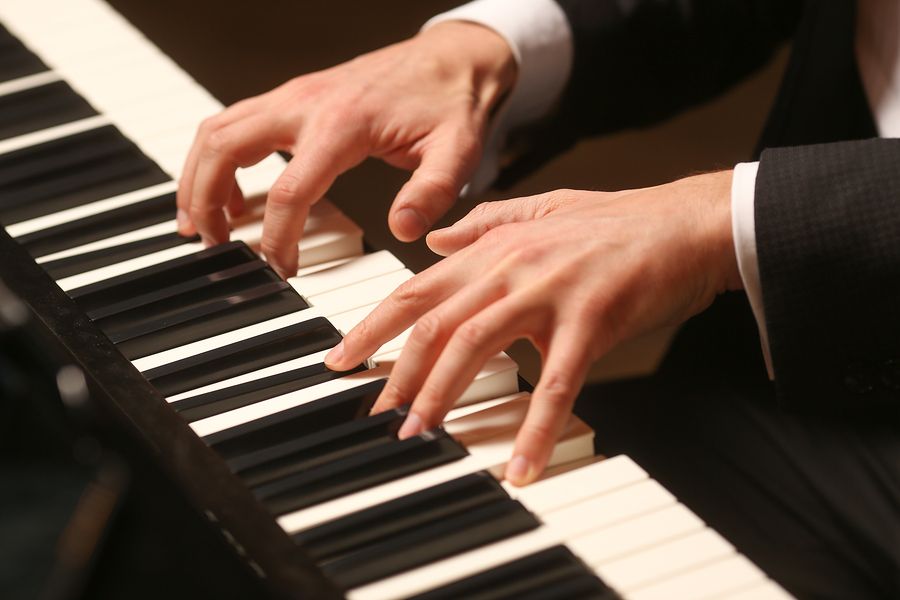Physiotherapy isn’t just for athletes and manual labourers – it can also be a huge help to office workers and everyday Aussies as well!
One part of the body in particular where many people encounter pain is in the hands and fingers.
Do you work as a draftsman?
Are you a musician?
Have people told you that you type like a jackhammer?
If any of these apply to you, then you’ll understand the importance of your hands and fingers, how overuse and other injuries can affect your livelihood or hobbies, and why it’s so crucial that you look after them.
Today, our physio in Highett explains the most common types of hand and finger pain, and how physiotherapy helps!
What sort of problems necessitate physio for hands and fingers?
The hands are one of the most complicated parts of your body. It’s a complex system of joints, tendons, muscles, nerves, and more.
All of these can come together to allow you to do whatever it is you do.
Needless to say, any injury or pain in your hands and fingers can prove extremely disruptive. While in many cases they will recover on their own, that will take time. Not to mention, there’s no guarantee that your hands and fingers will heal properly.
Some of the most common cases of hand and finger pain include…
Repetitive strain injury (also known as ‘artist’s hand’)
‘Artist’s hand’ doesn’t just refer to an artist’s unique touch – it can also refer to a specific type of injury!
We typically don’t think of art as a high-risk occupation – dirty T-shirts and paper cuts are about as bad as it gets. If you work with a digital canvas, you don’t even need to worry about those either!
However, there’s one problem that we see pop up in many an artist – one which can make the simple act of picking up a pencil extremely painful.
Like the name suggests, repetitive strain injuries (RSI) come from repeated strain.
For many artists, this particular type of pain manifests itself in the hands, as you’ll constantly be flexing and stressing the muscles and joints in your hand when you draw or write.
While most common in artists, RSI can affect anyone who uses their hands a lot. Luckily, there are several changes you can make to your technique and set-up to prevent the problem.
Not to mention, you can always talk to your physio in Highett if pain stops you from drawing!
Skier’s thumb
Like the name suggests, skier’s thumb is an injury to the soft tissue (ligaments) that connect the bones of your thumb together.
Skier’s thumb affects the ulnar collateral ligament (UCL) in particular, which can be found on the inside of your thumb.
And as a ligament injury, skier’s thumb is essentially a thumb sprain. Just like sprains in other joints, skier’s thumb comes in several grades depending on the severity, ranging from microtears to complete tearing.
While it may be named after skiers, it can occur in anybody who finds themselves tensing their thumbs all the time as part of their hobbies or work.
Learn about the differences between strains and sprains.
Mallet finger
Mallet finger is a term used to describe deformation to your finger – specifically, it refers to deformities that arise as a result of damage to the tendon that straightens your finger.
Tendons are the tissues that connect muscles and bones, and play a crucial role in manipulating joints and moving your fingers.
For example, the extensor tendons that run along the top of your hands straighten your fingers, while flexor tendons in the palm bend them.
The idea is that physical impacts or trauma inflicted on these tendons can damage or even completely tear these tendons.
Once the connection is severed, you lose connection to the affected finger.
Your capacity for finger control is lost, and affected fingers return to their default resting state, creating the distinctive droppiness.
Treating mallet finger requires splinting, and even surgery in extreme cases. This can be supported by physiotherapy for fingers, which can build up strength and improve your recovery.
This type of injury is especially common in DIY-ers and would-be carpenters, though we also see many amateur athletes presenting with mallet finger.
Carpal tunnel syndrome
The carpal tunnel is a vital passageway in your hand – one that few people realise exists, and which even fewer actively look after.
Essentially, the carpal tunnel protects the median nerve (the main nerve in your forearm), as well as blood vessels and tendons. Most of the connections from your arm to your hand and fingers run through this tunnel.
Space is pretty tight inside the carpal tunnel, and swelling anywhere can result in sensitive nerves and veins being impacted.
For example, say you suffer a wrist injury, In this case, the tissue surrounding the carpal tunnel may swell, compressing the nerves inside.
Another example is when the nerves, veins and tendons within the tunnel swell, coming into contact with the tunnel walls.
Either way, the result is the same: hand pain.
Physiotherapy for hands and wrists can be beneficial to those suffering from carpal tunnel. In addition to strength-building exercises and stretches, your physio in Highett also applies physical manipulation that helps stretch and open the carpal tunnel.
How our physio in Highett can help
Our physio in Highett uses a range of techniques to reduce hand and finger pain, and to facilitate a faster recovery, including:
- Remedial massage
- Joint manipulation
- Strength-building exercises
- Dry needling
At Physio AUS however, we go even further. Our physio in Highett looks beyond physical therapy in order to ensure your pain never returns.
To get to that point, we start by conducting an in-depth consultation that looks at the exact causes of your hand and finger pain.
Over the years, we’ve noticed that in many cases, the root cause isn’t injury. In some cases, the cause can be as simple and mundane as:
- Poor ergonomics
- Improper technique
Depending on what cause (or causes) we identify during our breakthrough session, we’ll prescribe a custom recovery plan that restores function to your hands and fingers, as well as technique modifications and tools.
Starting to experience unexpected hand or finger pain? Fed up with chronic hand and finger pain
Call Physio AUS today on (03) 9525 6077 or click here to book online!

 1300 392 552
1300 392 552

Leave A Comment